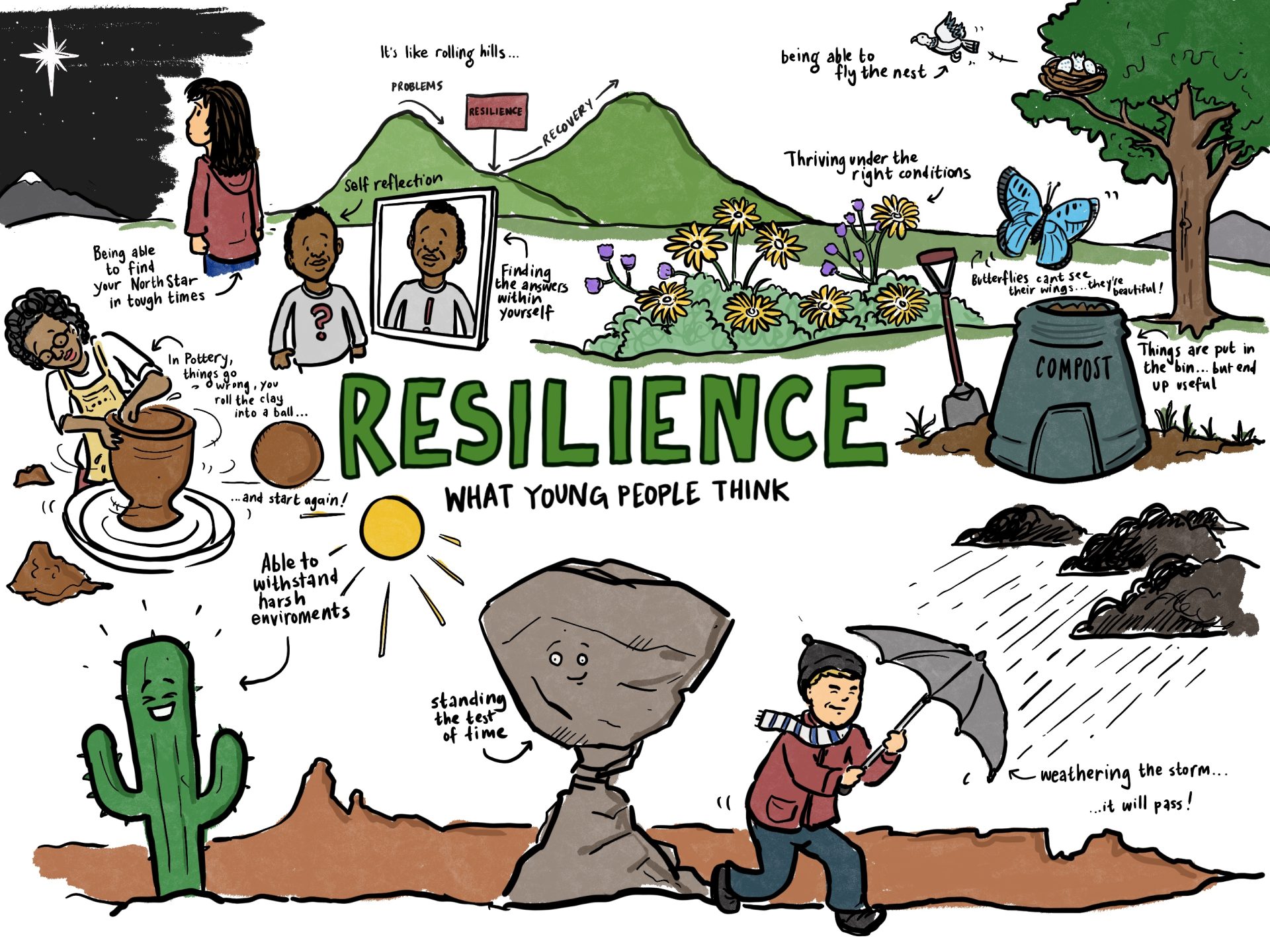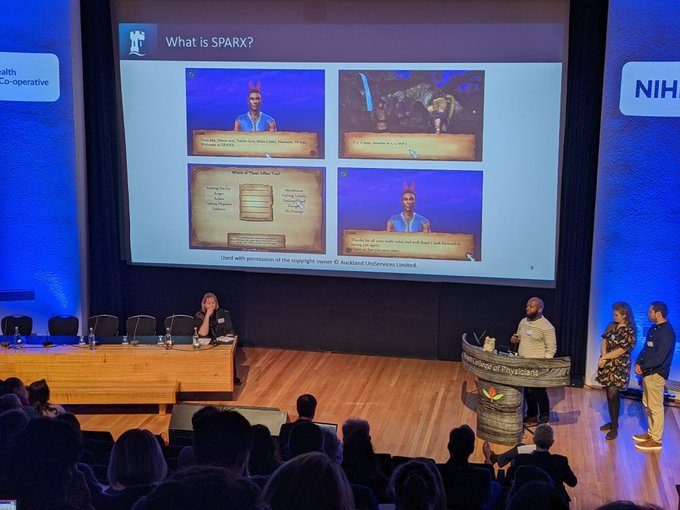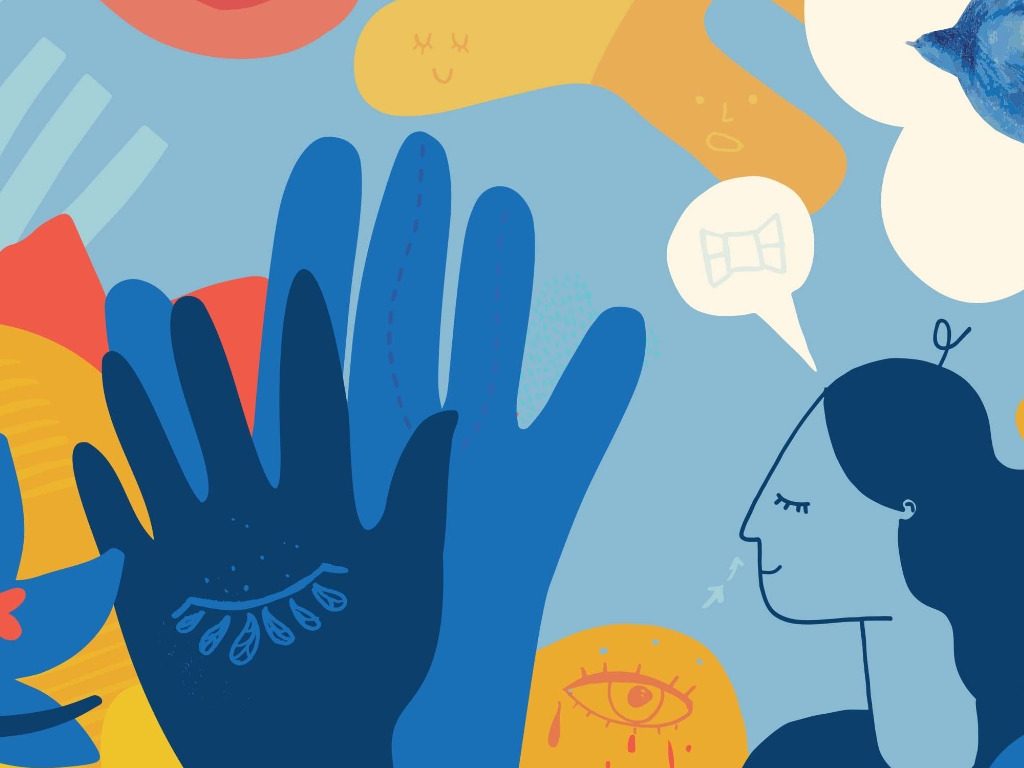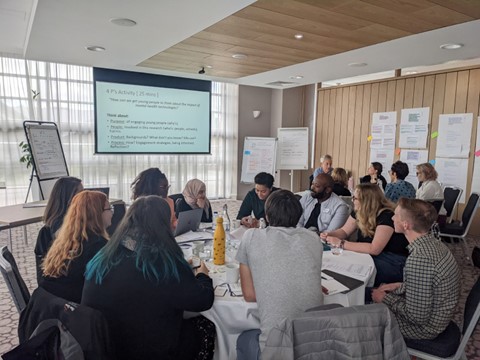Digital Youth researchers join governmental project to understand impact of smartphones and social media on young people
Experts from the University of Nottingham are part of the ...
Sprouting Minds skills workshop: presentations and zine-making
On Saturday 11 May, members of Sprouting Minds and the programme management team met in London for a skills workshop hosted by science communicators Sarah Cosgriff and Hana Ayoob. In this cheerful and collaborative session, the Sprouts had the opportunity to develop their presentation skills through storytelling and communicate their knowledge and interests through zine-making.
Working in partnership: bringing youth mental health research into the real world
In April, researchers and young people from the Digital Youth Programme and Sprouting Minds met at the Anna Freud Centre with partner representatives from charities and third sector organisations to discuss our shared interests and priorities for the future of youth mental health.
‘You just need to toughen up!?’ Exploring different understandings of the term resilience
‘You just need to toughen up!?’ Exploring different understandings of the term resilience. The Digital Youth programme brings together a talented team with a diverse range of expertise, skills and experiences. This includes young people with lived experience expertise and researchers from a range of disciplines. Our Digital Definitions and Debates project makes the most of the opportunity this diversity in expertise and experience offers. We are: - Compiling and creating short and clear explanations of commonly used language in Digital Youth mental health research. - Hosting workshops to share and explore our understandings of more complex and contested terms where different perspectives are important. We hope that this project will: - Build understanding, facilitate meaningful conversations and enable further collaboration across our Digital Youth team. - Provide a useful resource for Digital Youth team members and beyond.
Screen time: Impacts on education and wellbeing
The UK Government’s Education Committee recently called for evidence on “how screen time can support and impact children’s development, wellbeing, and educational outcomes” in order to understand “the effectiveness of digital safety education in schools and the ways in which schools and parents can be better supported to manage children’s screen usage” as well as “how screen use for academic purposes is being managed in schools.” Coincidentally, the Prime Minister announced a mobile phone ban in UK schools, apparently on the grounds that they distract students from learning and facilitate cyberbullying. This was unexpected, and the relation between the proposed ban and the formal call for evidence has not been made clear. Digital Youth and Sprouting Minds, in the middle of its examination of the complex risks and opportunities for mental health associated with young people’s engagement with the digital world, respond to this.
Growing up in a Digital World: The implications on men’s mental health from both a lived experience and research perspective.
Clearly, although social media and other online sites can be harmful to the mental health of men (as they can reinforce the harmful masculine norms in our society), they also provide opportunities for social support which would not otherwise be available to them. This is something that needs to change. It is hoped that the continued growth of these supportive online communities will eventually erode the stigmas which present a life-threatening risk to men. The question that remains is how can we maximise the positive influences of these supportive online communities while minimising those that are toxic and harmful?
Reflections on Young People’s Advisory Groups (YPAGs);payment, emotional labour, legitimacy and some take homes
I’ve decided to do a blog about my highlights from being on Young People Advisory Groups (YPAGs) over the past few years, as I step into the 26 – 30 age bracket. There is always some anxiety around turning 25+ when you have been involved in YPAGs because there is little or no clarity on what happens after 25 (in the patient and public involvement world) - are there more / fewer opportunities for meaningful involvement after 25?
Purrble: The Research So Far
Within this sector of mental health research, I have been collaborating as a part of the Digital Youth research programme and Sprouting Minds group, with researchers Jess, Petr and Ellen, who work with a co-designed fluffy robot called Purrble. This robot is currently being used as an emotion regulation intervention for young people who may be struggling with self-harm.
Meet our researchers – Dr Sieun Lee
Sieun Lee is a Research Fellow working on Digital Youth research project 4, which is focused on developing resilience to self-harm and suicidality in the digital world, and the role of brain, psychology and the social world in this.
How digital technologies may impact eating disorders and mental health.
Lucy-Paige’s blog raises many issues that will resonate with young people about the impact that social media can have on people with, or at risk of, eating disorders.
Demystifying Responsible Research and Innovation (RRI) and Personal and Public Involvement (PPI)
You're running a research project around social media and online harms. We want to recruit young people to take part in some online interviews but the research team needs some advice from you, reader. By Ewan Soubutts, Digital Youth Researcher
The impact of digital experiences on adolescents with mental health vulnerabilities
Professor Sonia Livingstone and Mariya Stoilova explain the findings of their new report on the impact of digital experiences on adolescents with mental health vulnerabilities, and the implications for regulation of online platforms.













